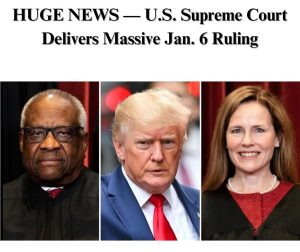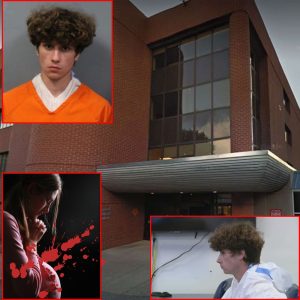The Supreme Court on Tuesday declined to hear an appeal from John Nassif, a Florida man convicted for his involvement in the January 6, 2021, attack on the Capitol.
Nassif challenged the constitutionality of a law that bans “parading, picketing, and demonstrating” inside the Capitol, arguing it violates the First Amendment’s protections of free speech and assembly. The charge is one of the most frequently applied to defendants from the January 6 attack.

President-elect Donald Trump is considering pardons for many involved in the Capitol riot.
The defendant, 57, was sentenced to seven months in prison after being convicted of multiple misdemeanors, including disorderly conduct and violent entry. Prosecutors had initially recommended a sentence of 10 to 16 months, the Washington Examiner reported.
Nassif’s public defenders argued that he entered the Capitol nearly an hour after it was breached and remained for less than 10 minutes, engaging in what they described as “core First Amendment expression” that was “in no way disruptive.”
Lower courts, including the U.S. Court of Appeals for the D.C. Circuit, rejected Nassif’s arguments. A three-judge panel ruled that the Capitol buildings are not a public forum open for protests, allowing the government to impose reasonable and viewpoint-neutral restrictions to maintain order and security.
“Nassif has not established that the Capitol buildings are, by policy or practice, generally open for use by members of the public to voice whatever concerns they may have — much less to use for protests, pickets, or demonstrations,” the panel stated.
Nassif’s petition highlighted a conflict between the D.C. Circuit and the D.C. Court of Appeals regarding the Capitol’s status as a public forum. While the D.C. Circuit has classified the Capitol buildings as nonpublic forums, allowing for broader restrictions, the D.C. Court of Appeals has recognized certain areas, such as the Capitol Rotunda, as public forums where speech restrictions must be narrowly tailored.
U.S. District Judge John Bates had previously upheld the parading charge against Nassif, citing established precedents that permit reasonable restrictions on First Amendment activities within the Capitol. The government argues that such restrictions are necessary to prevent disruptions to congressional proceedings and to safeguard the security of the legislative process.
The Supreme Court’s decision to refuse hearing the case leaves the lower court’s ruling intact, upholding the government’s ability to prosecute individuals under the parading statute. This ruling has significant implications for more than 460 defendants charged with the same misdemeanor related to the January 6 riot—making it the most common charge among the over 1,450 people prosecuted to date, according to the Department of Justice.
The last case the justices ruled on involving the riot was United States v. Fischer. In that case, the court narrowed the scope of the obstruction statute, Section 1512(c)(2), which had been applied to over 120 defendants, raising the burden of proof required for prosecution. On Nov. 1, U.S. District Judge Beryl Howell made a similar ruling in United States v. DeCarlo, setting a higher standard for imposing the obstruction charge. This decision suggests that the DOJ may struggle to successfully apply that charge in any remaining January 6 cases, the Examiner added.
Not much is clear yet as to the extent Trump plans to pardon Jan. 6 defendants or how many will be included on the list, the Examiner noted. Trump has previously said, “I am inclined to pardon many of them. I can’t say for every single one because a couple of them, probably, they got out of control.”
Of the total number of defendants, nearly 600 have been charged with assaulting, resisting, or impeding law enforcement officers, with arrests continuing to be made.
The longest sentences have been given to defendants like Stewart Rhodes, founder of the Oath Keepers, and Enrique Tarrio, leader of the Proud Boys. Although they were not charged with directly participating in violence inside the Capitol, they were convicted of seditious conspiracy and other felonies for orchestrating the riot.
